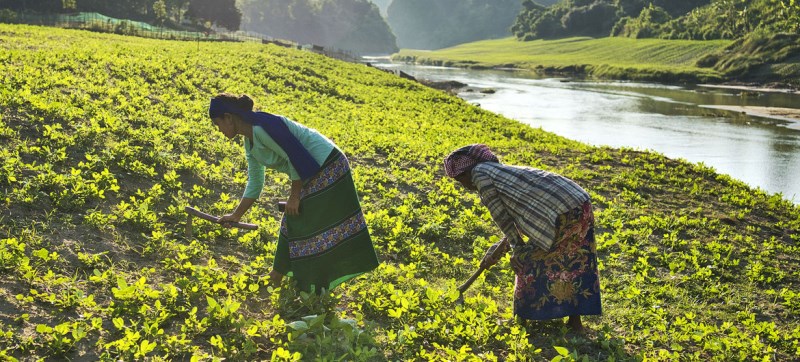 Joblessness
Joblessness Amid COVID job losses, ‘high food prices are hunger’s new best friend’, WFP warns
New York: Job losses caused by the COVID-19 pandemic combined with high food prices are making it hard for millions of families to get enough to eat, the World Food Programme (WFP) warned on Thursday.
WFP estimates that a record 270 million people worldwide are acutely food insecure or at high risk this year, a 40 per cent jump from 2020.
“High food prices are hunger’s new best friend. We already have conflict, climate and COVID-19 working together to push more people into hunger and misery. Now food prices have joined the deadly trio,” said Arif Husain, Chief Economist at the UN agency.
Food price inflation
WFP said countries more likely to experience high food price inflation are those that depend on food imports, or where climatic or conflict shocks could disrupt local food production, or those suffering from macro-economic fragility, with some of the highest price increases found in the Middle East.
Meanwhile, currency depreciation has further driven up local food prices in many countries, such as Zimbabwe, Syria, Ethiopia and Venezuela.
WFP’s latest Market Monitor, which provides information on price changes for common staples, reveals that in Lebanon, where economic turmoil has accelerated over the past year, the average price of wheat flour was 50 per cent higher in March through May than in the previous three months. The year-on-year price rise was 219 per cent.
In war-torn Syria, cooking oil has increased by nearly 60 per cent, and by 440 per cent year-on-year.
Mozambique, which is confronting a conflict in the north, is among “high food price hotspots” in Africa. The price of cassava there shot up by 45 per cent in March through May, compared to the previous three months.
The picture is reflected across international markets, according to the Food Price Index published by the UN Food and Agriculture Organization (FAO).
After rising for 12 consecutive months, food prices dropped slightly in June, reaching 124.6, which is just below the peak of 136.7 a decade ago. At the same time, the cost of a basic food basket has risen by more than 10 per cent in nine of the more than 80 countries where WFP operates.
Trouble for families
WFP is the world’s largest humanitarian organization, and its food assistance can make the difference between life or death for millions facing hunger.
While food price hikes directly impact the people it serves, they have also affected millions of families whose incomes have been decimated by the pandemic.
The crisis could push as many as 97 million people worldwide into poverty by the end of the year, according to the World Bank.
“If you’re a family that already spends two thirds of your income on food, hikes in the price of food already spell trouble. Imagine what they mean if you’ve already lost part or all of your income because of COVID-19,” said Mr. Husain.
WFP explained how high food prices affect its work, first by driving up the number of people who need help. At the same time, the cost of commodities for food assistance operations is increased, with the agency paying 13 per cent more for wheat during the first four months of the year than it did in 2020.
WFP is aiming to reach nearly 140 million people worldwide this year, its biggest operation ever.
Support Our Journalism
We cannot do without you.. your contribution supports unbiased journalism
IBNS is not driven by any ism- not wokeism, not racism, not skewed secularism, not hyper right-wing or left liberal ideals, nor by any hardline religious beliefs or hyper nationalism. We want to serve you good old objective news, as they are. We do not judge or preach. We let people decide for themselves. We only try to present factual and well-sourced news.







